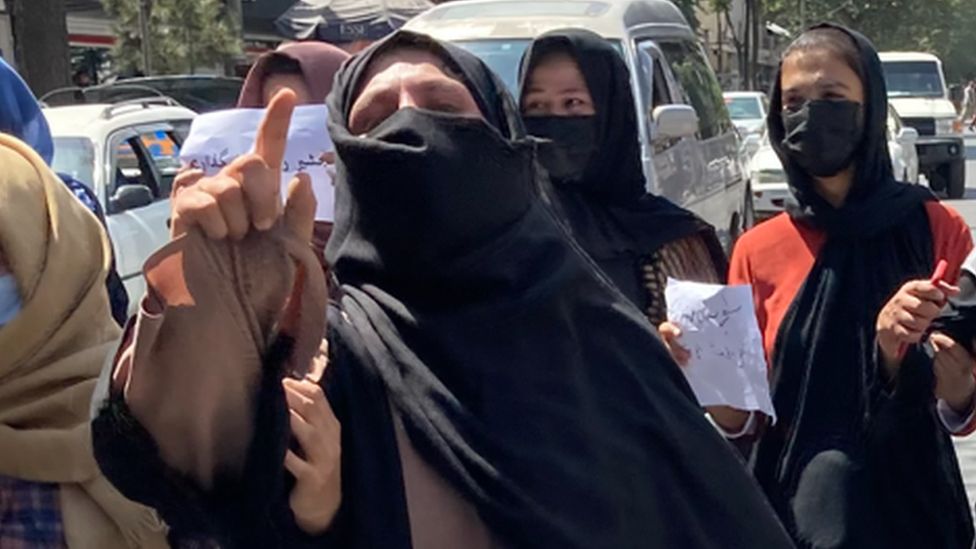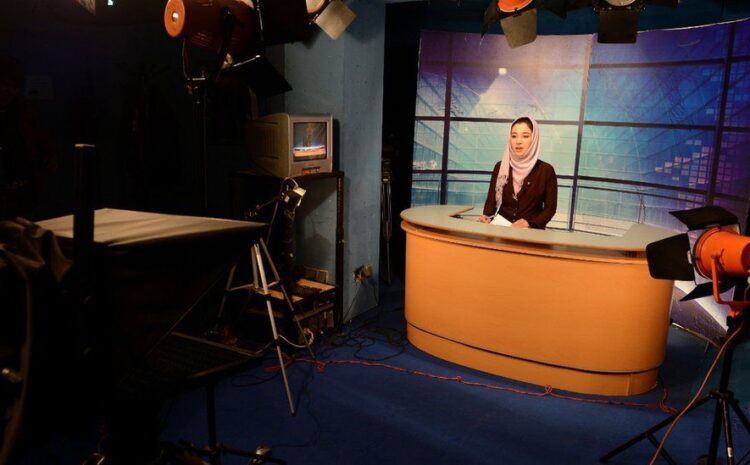
IMAGE SOURCE, AFP Image caption, Female presenters – faces uncovered – have become common on screen in recent years
By Simon Fraser
BBC News
Media outlets were told of the decree on Wednesday, a religious police spokesman told BBC Pashto.
The ruling comes two weeks after all women were ordered to wear a face veil in public, or risk punishment.
Restrictions are being tightened on women – they are banned from travelling without a male guardian and secondary schools are shut for girls.
One female Afghan journalist working for a local TV station in Kabul, who did not want to be named, said she’d been shocked to hear the latest news.
“They are putting indirect pressure on us to stop us presenting on TV,” she told the BBC.
“Based on information received by Tolo news, the order has been issued to all media outlets in Afghanistan,” the news channel reported.
The decision is being widely criticised on Twitter, with many calling it another step by the Taliban to promote extremism.
“The world deploys masks to protect people from Covid. The Taliban deploys masks to protect people from seeing the faces of women journalists. For the Taliban, women are a disease,” one activist tweeted.
The private Shamshad news channel posted a photo of its news presenter wearing a mask, and other similar images are being shared on social media.
During their first stint in power in the 1990s the Taliban forced women to wear the all-encompassing burka in public.
The hardline Islamist movement was driven from power by US-led troops in 2001, after which many restrictions eased. Women appearing on television showing their faces became a common sight.
After retaking power last August, following the withdrawal of foreign forces, the Taliban had held off issuing new laws on what women should wear.
This raised hopes they would govern Afghanistan, a deeply conservative and patriarchal country, more flexibly this time.
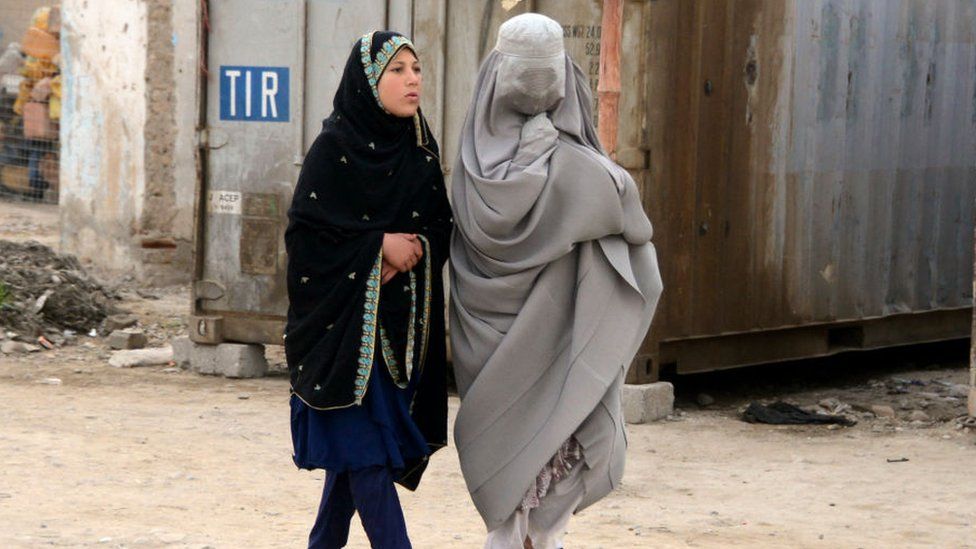 IMAGE SOURCE, GETTY IMAGES
IMAGE SOURCE, GETTY IMAGESMany women still wore the burka, but in bigger cities it was also common to see women continuing to wear headscarves.
However in early May the Ministry for the Prevention of Vice and Promotion of Virtue announced that all women would have to cover their face in public, and indicated that a burka would be the ideal garment to achieve this.
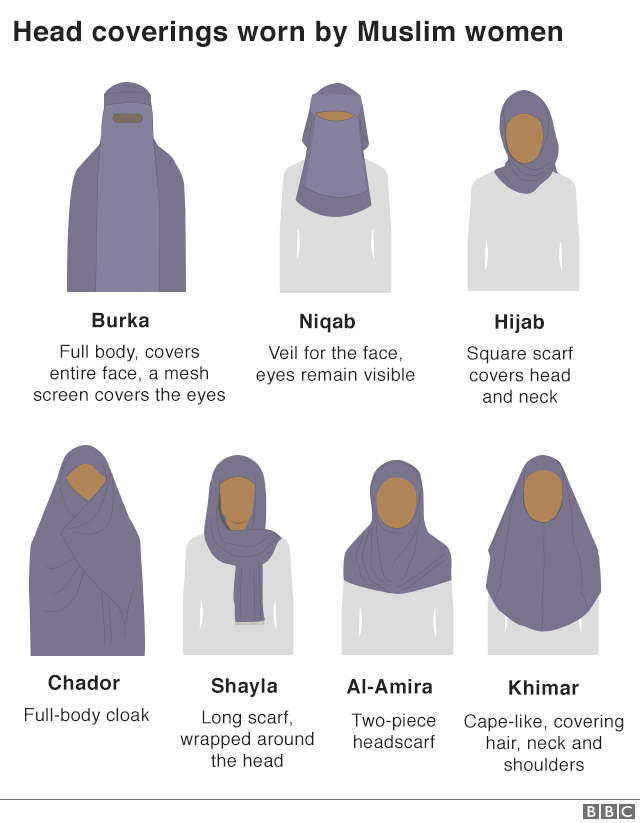
Most Muslims around the world do not consider women covering their face mandatory, or oppose them working.
Women are still employed in some jobs in Afghanistan, such as healthcare and education, but many others have been told not to return to work now the Taliban are back in power.
The country has been plunged into economic crisis and famine under Taliban rule.
Western diplomats have indicated that resuming development funding and unlocking frozen cash depends on better treatment of women.
But early hopes the Taliban might relax their approach have been eroded amid signs influential hardliners in the group have the upper hand.
The journalist in Kabul who spoke to the BBC wanted the international community to put pressure on the Taliban.
“They should tell them you have 10 days to change otherwise we are going to cut off relations and aid.”
She said she believed the Taliban planned to stop women doing all kinds of work outside their homes. “They want women to live like prisoners at home. Every day they issued decrees against us – I don’t think we can survive.”
Additional reporting by Mahfouz Zubaide
-
Women’s faces become latest Taliban restriction
7 May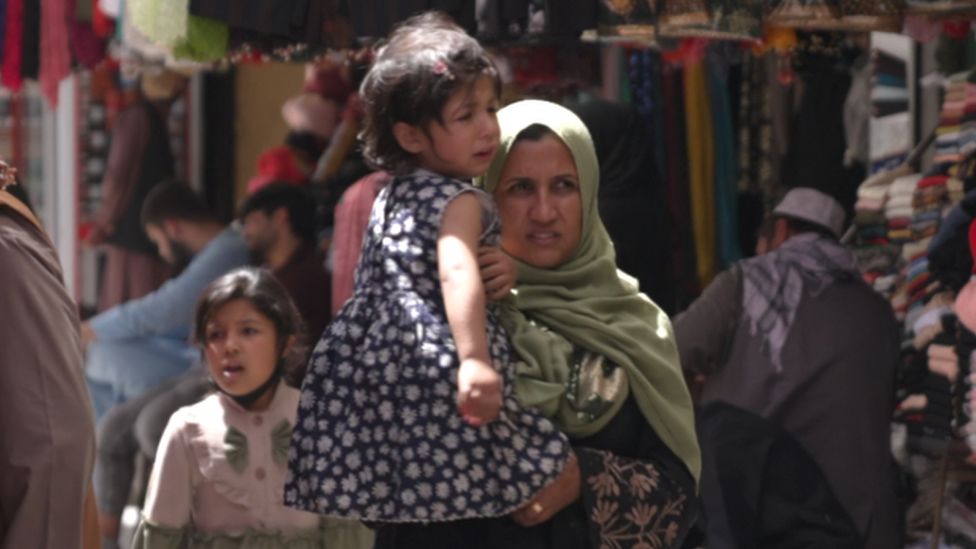
-
How have women’s lives changed under Taliban?
24 August 2021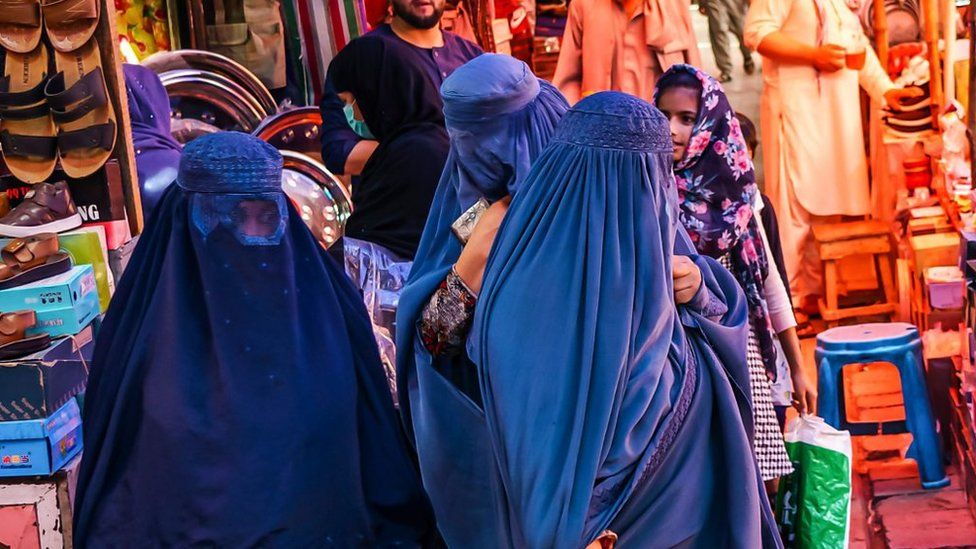
-
Girls’ tears over chaotic Taliban schools U-turn
23 March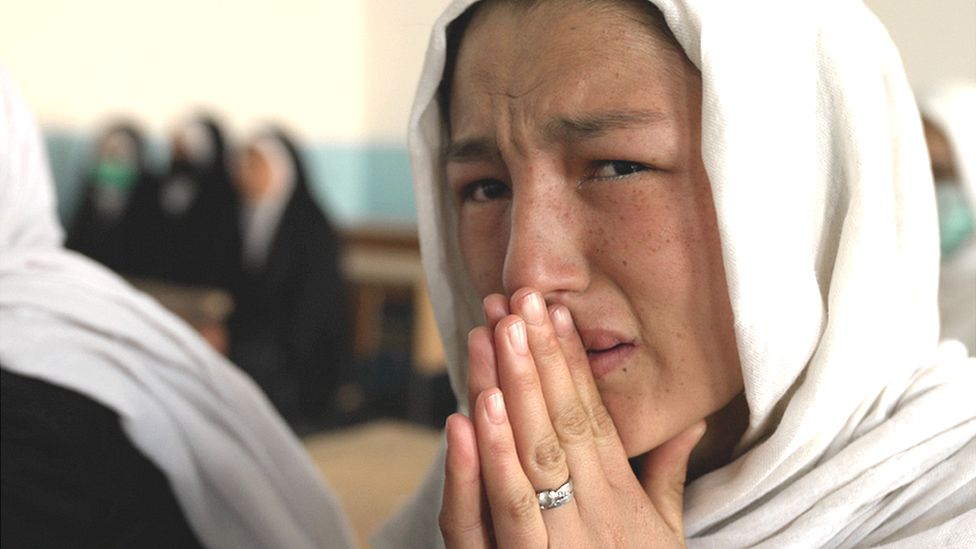
-
What has changed in Afghanistan in 20 years
10 September 2021